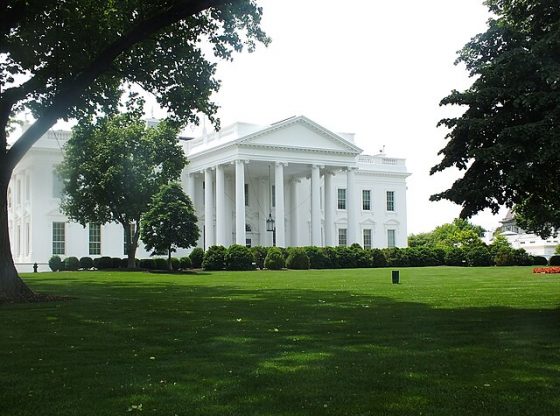So as a Navy guy, this pains me to say, but the U.S. Army has some absolutely magnificent history resources on its numerous websites. And of course, the best part is that nearly all of them are available as free PDF downloads, which allows me to fill up my GoogleDrive folder with great history.
BUT – apparently, the rot of political correctness brought on by this Administration and its toadies eager to rewrite history has infected them as well. I was scanning one of their new publications and saw this Publisher’s Note:
Books are published by our press that describe the historical facts pertaining to the American Civil War and acknowledge that the legacy of that war is still at the forefront of our national conversation. We intend to describe the political and social situation of the Civil War in a neutral manner.
Ok, so this sounds good, but then it devolves into some kinda strange gibberish:
For example, the traditional terms to describe the opposing sides, North and South, are only used for grammatical variety, as they ascribe generalities that certainly did not apply to the totality of the “North” or the “South.” Many local citizens who resided in states that openly rebelled against the United States government were not in favor of secession, nor did they believe that preserving slavery warranted such a violent act.
Similarly, citizens in states who remained loyal to the United States did not all feel a strong commitment toward dissolving the institution of slavery, nor did they believe Lincoln’s views represented their own.
Whut? – I mean seriously, what is the purpose of this? So yes, there were significant pockets of Unionists in the south and there were plenty of “Northerners” who were for preserving the Union but initially didn’t care about ending slavery. Ok, this is a fact and I guess they wanted to state it.
But then things get sort of strange:
while the historiography has traditionally referred to the “Union” in the American Civil War as “the northern states loyal to the United States government,” the fact is that the term “Union” always referred to all the states together, which clearly was not the situation at all. In light of this, the reader will discover that the word “Union” will be largely replaced by the more historically accurate “Federal Government” or “United States Government.” “Union forces” or “Union army” will largely be replaced by the terms “United States Army,” “Federals,” or “Federal Army.”
Now we are lapsing into some serious hair-splitting… Union, Federal… but was there a United States Army? That seems to be what the war was about…would there be a United States as it was in 1860 or a reduced United States?
Then it appears they go full PC with this section
The Reconstruction policy between the Federal Government and the former rebellious states saw an increased effort to control the narrative of how and why the war was fought, which led to an enduring perpetuation of Lost Cause rhetoric. The Lost Cause promotes an interpretation of the Civil War era that legitimates and excuses the secessionist agenda. This narrative has been wholly rejected by academic scholars who rely on rigorous research and an honest interpretation of primary source materials. To rely on bad faith interpretations of history like the Lost Cause in this day and age would be insufficient, inaccurate, and an acknowledgment that the Confederate States of America was a legitimate nation. The fact is that Abraham Lincoln and the United States Congress were very careful not to recognize the government of the states in rebellion as a legitimate government. Nonetheless, those states that formed a political and social alliance, even though not recognized by the Lincoln government, called themselves the “Confederacy” or the “Confederate States of America.” In our works, the Army University Press acknowledges that political alliance, albeit an alliance in rebellion, by allowing the use of the terms “Confederate,” “Confederacy,” “Confederate Army,” for ease of reference and flow of the narrative, in addition to the variations of the term “rebel.”
So this appears to be some sort of weird mental and literary gymnastics to avoid getting a PC slam for using the words “Confederate” and “Confederacy” which were the terms used by historians since the end of the war.
Yes, the Lost Cause is now verboten as a term and yes, there are many historians who will label anything and everything to do with the Confederacy as driven by slavery. In the big picture no serious historian argues that the preservation of the slave system was the driving force in southern state secession, but was it the sole motivation of every Confederate soldier and general? I don’t think the historiography supports that either. And let’s be historically accurate and not PC at the same time—the Confederacy believed that THEY were the true followers of the Constitution as it was written at the time (i.e., before the 13th, 14th, and 15th Amendments). This is also supported by most of the primary sources. So to use a historical pun, it was not as black and white as modern historians would like. Even Abraham Lincoln and the majority of his party clearly stated that they had no Constitutional authority to change or eliminate slavery where it existed, the entire issue (excellently described by Bruce Catton) was the extension of slavery into the territories and here Lincoln was adamant that the Federal government had the authority to prevent this.
I am very concerned that the future of Civil War history is in jeopardy. Will Confederate memoirs be banned? Will the works of Douglass Southall Freeman be rewritten? Will all future works have a strange forward like this one to make sure that no one is offended?
My recommendation is to buy published books now… Bruce Catton’s books are magnificent, and if you really want, buy the Battles and Leaders series since those are full of recollections by Confederate generals, those will probably be the first to be banned.
















Unfortunately, I see a future where any history books written prior to the 2020’s will be confiscated and destroyed. It has happened before. Preserve your books in storage lockers buried in cement in the ground… and hopefully all this madness will end.
Funny they don’t mention that the southern slave states were Democrat…